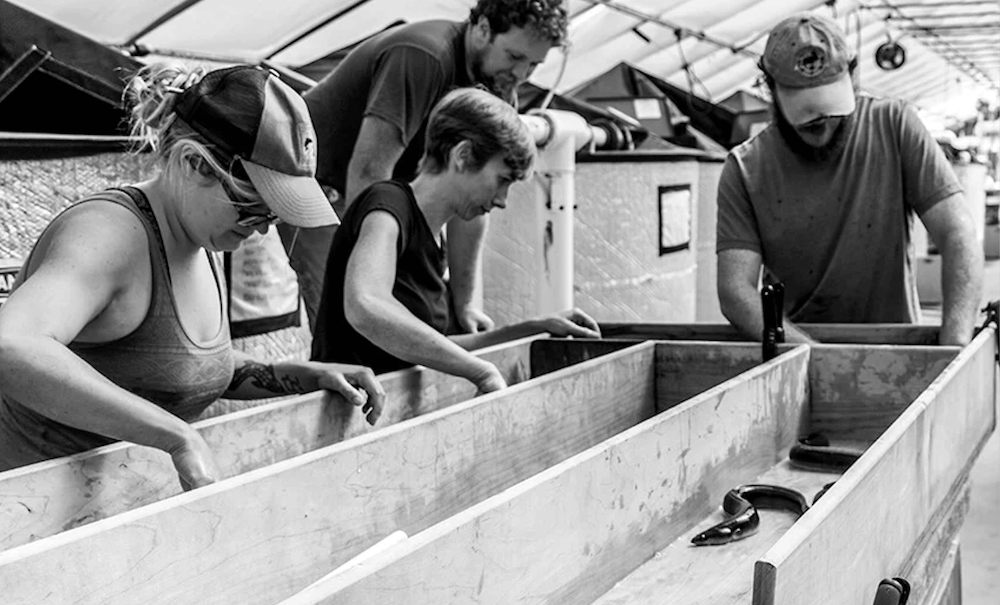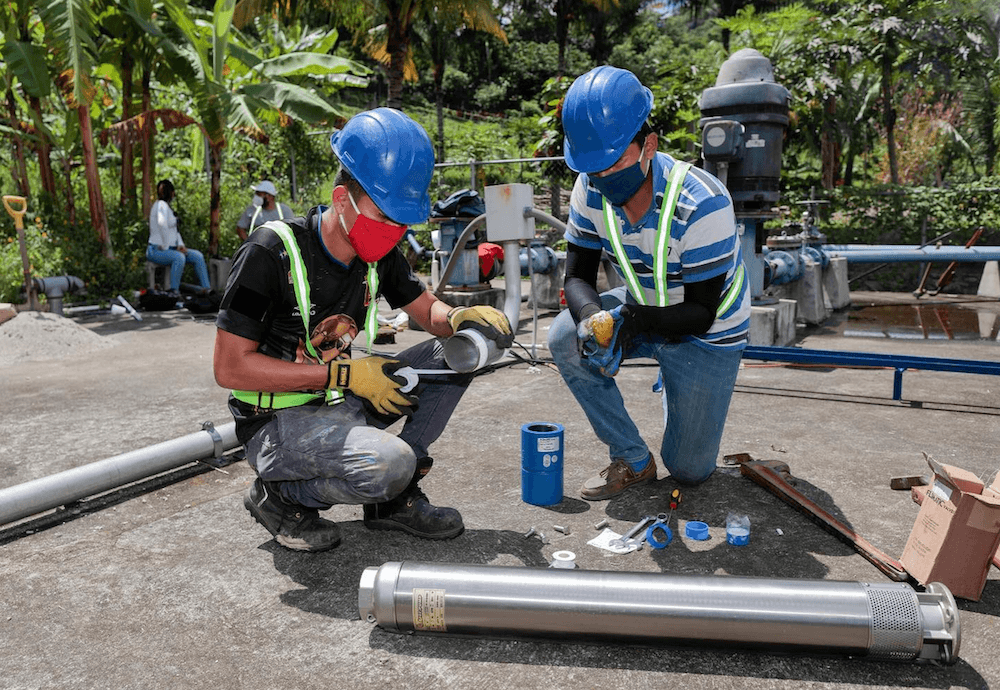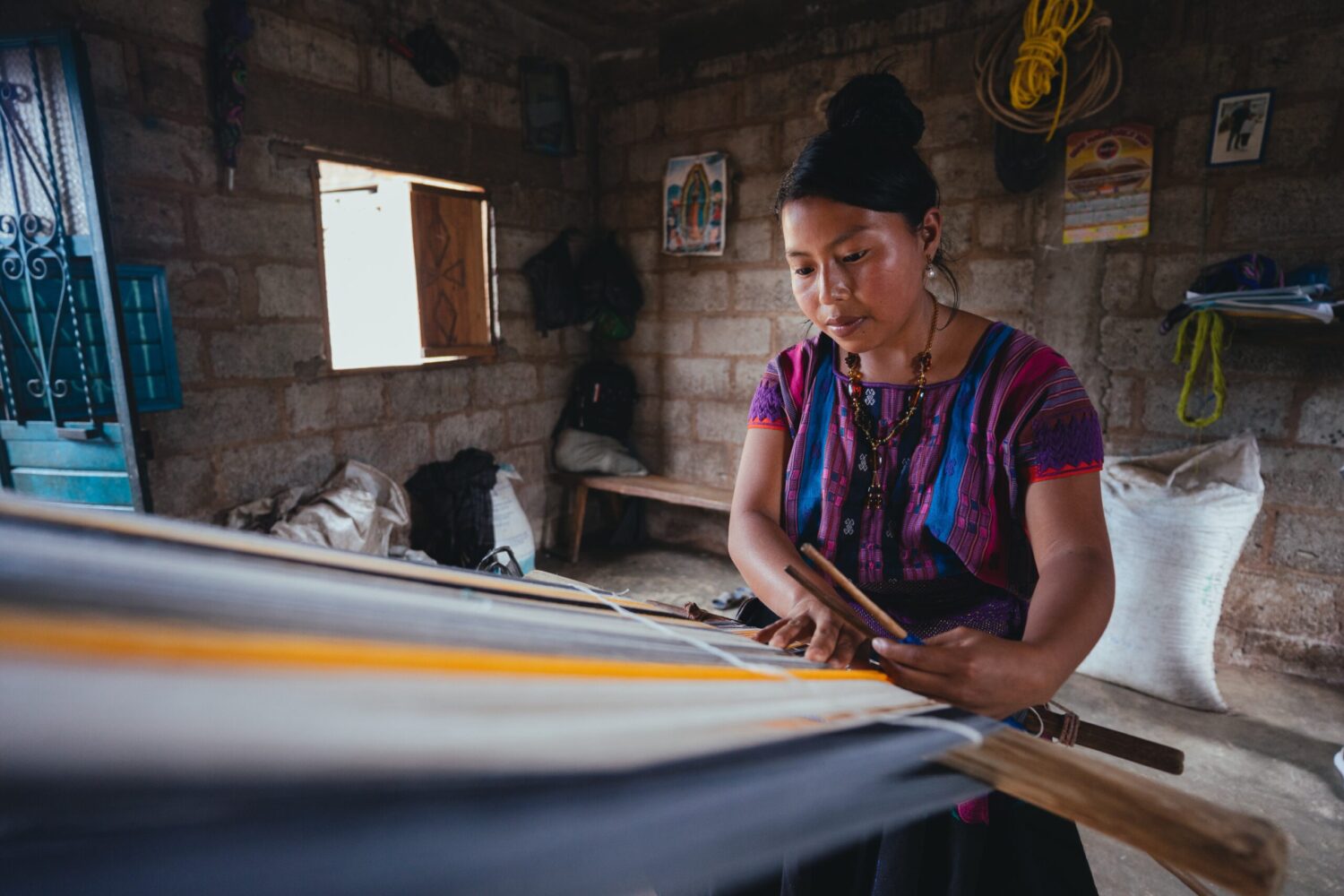ImpactAlpha, May 2 – The past year’s market volatility only amplified America’s crisis of affordable housing, “hitting low- and moderate-income individuals and families the hardest,” says Nina Tschinkel of Salt Lake City-based Catalyst Opportunity Funds.
This month’s Liist of funds currently raising capital includes three funds looking to meet the moment with new vehicles for investing in more inclusive, resilient U.S. communities. Catalyst’s focus: real estate development of healthy and affordable homes from the Midwest to the West Coast, along with local economic activity and job creation. The organization largely invests via diverse-led real estate developers.
Habitat for Humanity International’s Mortgage Solutions lending group is raising a $100 million flexible lending fund to encourage Black homeownership in the US. Half of the capital will support first-time homebuyers.
Santa Fe-based New Mexico Vintage Fund is raising a small flexible finance fund for diverse entrepreneurs and green businesses across the state—one of the poorest in the US.
In South Africa, private equity firm Secha Capital is in the market with its second fund, which is looking to raise $50 million to support “boring” but essential and job-creating businesses in a country ranked the highest in the world for unemployment and wealth inequality.
Also on this month’s Liist: Netherlands-based Wire Group, which is raising its second impact fund of funds. Inclusive communities is among its investment themes, as is regenerative agriculture and health and nutrition. Capria Ventures’ second fund is backing early-stage generative AI, climate and other tech startups in the Global South at a time when venture funding is scarce.
Of note: four of the six fund managers on this month’s Liist are in the market with second funds.
Know an impact fund manager currently raising capital? Drop us an email or complete this short form.
(Disclaimer: The Liist and this post are based on available information, sourced by ImpactAlpha. Information has not been further reviewed by the managers nor verified by third parties, is not guaranteed for accuracy or completeness, and should not be relied upon as investment advice or recommendations. Nothing in The Liist, this post or on ImpactAlpha.com shall constitute an offer to sell or the solicitation of an offer to buy securities.)
Capria Ventures is raising its second fund to make early-stage tech investments in emerging markets. Despite economic headwinds and a venture downtown, “the case for investing in the Global South is as strong or stronger than ever,” Capria’s Will Poole told ImpactAlpha. The firm is looking to raise $100 million to cut equity checks of $2 million to $3 million. It has secured backing from Gates Ventures, OIP Investment Trust, Crystal Springs Foundation, the Sall Family Foundation, the Brakeman Family Trust and others.
- New themes. Capria raised $57 million for its first fund, which launched in 2020. Though it doesn’t call itself an impact investor, the firm invests in tech sectors that have a positive impact on emerging market economies and livelihoods, like inclusive fintech ventures with ethical lending standards in place. Its second fund is keying in on climate and generative AI opportunities. It has disclosed four investments: Egyptian fintech venture Paymob, Brazilian agtech startup Agrofy, Nigerian mobility startup MAX, and Mexican fintech startup Kueski.
Salt Lake City-based Catalyst Opportunity Funds was launched by Sorenson Asset Management in 2019 to invest in real estate developers building affordable housing for low-income, underserved and minority communities. The fund manager aims to make an impact by enabling healthy homes, job creation and local economic activity. Catalyst is eyeing a $250 million raise for its second fund. “Unfortunately, 2022’s market volatility only amplified America’s housing affordability crisis, hitting low- and moderate-income individuals and families the hardest,” Catalyst’s Nina Tschinkel told ImpactAlpha
- Track record. Catalyst’s second fund makes equity investments between $10 million to $15 million in ground-up real estate development projects, with a regional focus on the US Pacific Northwest, western Mountain Region and the Midwest. The fund has made five investments and secured $100 million from investors. Nearly two-thirds of Catalyst’s portfolio, including its first fund, are diverse-led real estate developers.
- Get in touch with Jeremy Keele for more information.
Housing NGO Habitat for Humanity International launched Habitat Mortgage Solutions in 2017 to reduce financing barriers to homeownership for low-income families. The community development financial institution is in the market with a $100 million strategy to create access to homeownership for 1,000 buyers. The fund is part of Habitat’s Advancing Black Homeownership initiative, launched last June, which leverages Habitat’s local affiliates and other partners to reduce the homeownership gap for Black households. Half of the capital will be invested in support of first-time Black homebuyers. Other impact metrics Habitat will track: the number of women-led households, affordability of homes created, and the number of homes built using green building practices.
- Fund pipeline. Habitat Mortgage Solutions will deploy flexible mortgage loans of up to $5 million to acquire, rehabilitate or build homes. The pipeline of projects includes a community of 80 single-family homes near Tacoma, Wash. that requires $4 million in acquisition and rehab financing. The refurbished homes would be sold to families earning between 80-120% of the area’s median income.
- Anchor capital. Habitat for Humanity International provided $10 million in first-loss capital to the fund. The organization is looking to raise senior and subordinate debt or equity, including bank loans, program-related investments, and grants and recoverable grants for the remaining $90 million.
- Contact Daniel Gura for more information.
New Mexico has one of the poorest economies in the US. Santa Fe-based New Mexico Vintage Fund wants to give the state’s diverse entrepreneurs and green businesses a boost with a $2.5 million flexible finance fund. The fund cuts checks of up to $250,000 using a combination of equity, debt, revenue-based finance, SAFEs and other instruments. New Mexico Vintage Fund has secured more than $2.1 million from nearly 40 accredited investors, most of whom are from New Mexico. The fund is a partnership with New Mexico Angels.
- Portfolio profile. It has so far cut 15 checks amounting to nearly $2 million. Portfolio companies include Ganymede Games, a Las Cruces-based independent creative gaming studio, and Santa Fe-based Respect Wellness, which makes artisanal wellness and skincare products. Half of the businesses have diverse leadership teams.
- Contact Drew Tulchin for more information.
Secha Capital got its start in 2017 with an investment thesis focused on “boring” but essential and job-creating business sectors in Southern Africa. The private equity firm takes a stake as an operating partner in small companies where it can help modernize, professionalize and scale up analog business models. Secha’s second fund is looking to raise $50 million to make 15 equity and convertible debt investments. The South Africa and US-domiciled fund has secured $20 million in commitments, primarily from South African institutional investors. Secha has warehoused four deals, including iG3N, a black-female founded battery storage company, and FarmTrace, a farm management software company focused on high-value crops.
- Track record. Secha has backed 10 companies from its first fund, eight of which are women-led, and supported the creation of 350 jobs in a country that ranks the highest for both unemployment rate and wealth inequality. The firm’s portfolio includes two Black female-founded businesses that it says have grown 100x. It has exited its first investment—Black beauty and cosmetics company Nativechild—at a 42% IRR.
- Get in touch via email.
Dutch impact advisor Wire Group made the switch from impact investment advisor to fund manager with the launch of its first fund of funds in 2019. It’s now raising a second fund to invest in regenerative agriculture, health and nutrition, sustainable forestry, and inclusivity for marginalized groups. Wire Thrive Fund has a target of €80 million to back 12 to 15 in private equity, venture capital and real asset impact fund managers. As with its first fund, 100% of Wire Group’s remuneration is linked to reaching its impact goals (for context on so-called “impact carry”, read this and this). Wire Group is pledging 10% of its profits to its foundation.
- Impact track record. Wire Private Markets Fund, the firm’s first fund, is nearly fully deployed, having backed nine funds, including Lightrock’s first climate impact fund, TPG’s second Rise Fund and Quona Capital’s third financial inclusion fund. Three more upcoming investments will close out the fund. Wire Group’s second fund adds on with a gender lens, and “will specifically target inclusion and diversity for human and ecosystem healing,” the firm says.
- Contact Ronald Janse for more information.











